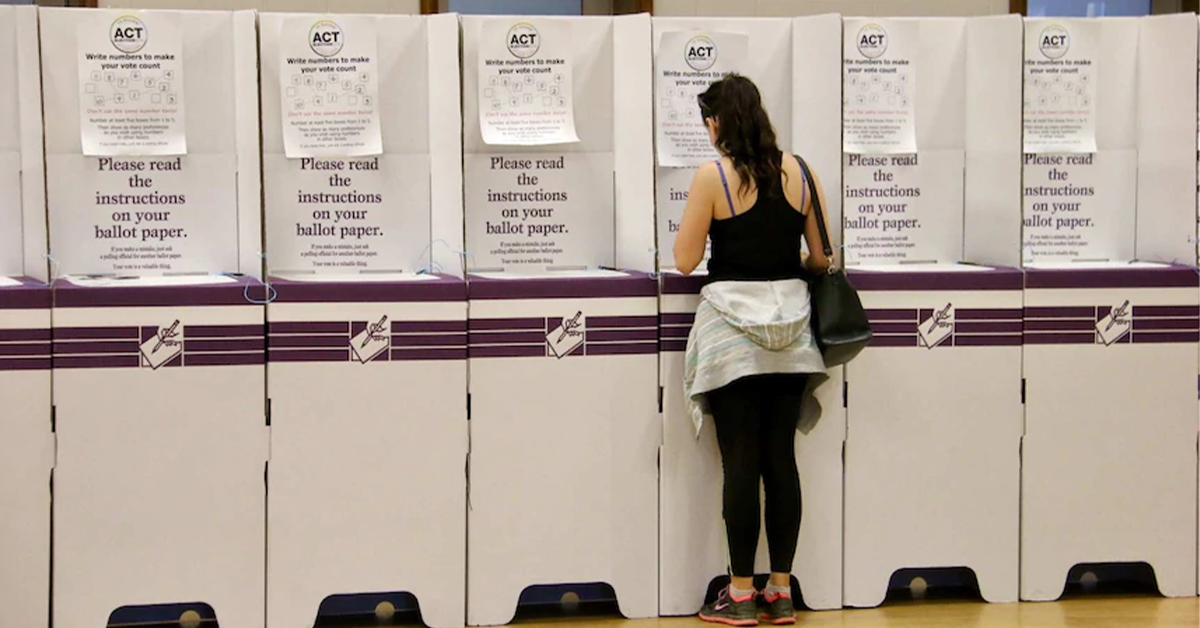The 2019 federal election saw the lowest voter turnout since voting became compulsory in the mid-1920s.
A staggering 1.5 million Australians failed to cast their ballot, with some of the most substantial no-shows in inner-city electorates with high percentages of young voters.
Yikes.
In fact – so few young people turned out that researchers (quite dramatically) suggested that Australia’s youth were ‘turning their backs on democracy’.
Fast forward three years, and if we may indulge in a cheeky Michael Scott quote…
With more than 80,000 18 to 24-year-olds racing to register before the enrolment deadline, a record number of young Aussies are set to flock to the polls on May 21 – fuelling rumours of a ‘youthquake’ set to shake up the election.
But why now?
What could be behind young Australians’ predicted surge in democratic participation?
Intifar Chowdhury, associate lecturer, and senior research officer at the ANU’s School of Politics and International Relations, says there are three ways of thinking that influence young people’s attitudes and behaviours towards elections and democracy.
The first is the ‘age effect’, which considers a person’s age as a key factor in their democratic engagement.
“The idea that young people don’t care about politics is a highly contested one among researchers,” wrote Chowdhury in The Conversation.
“(But) there is a large body of literature arguing younger people have different attitudes towards politics than older people because of where they are in their lives. (For example), politics may seem irrelevant (to young people) because they are less likely to have things like a mortgage or kids.”
Considering traditionally ‘adult’ concerns like housing affordability and ownership are freaking out Gen Zs too, we’re going to confidently rule this one out.
Maybe the ‘generation effect’ – which suggests that attitudes about democracy and our ideas about the value of our vote are tied to our formative years – can explain it?
“For example, baby boomers (born between 1946 and 1960) — who saw unprecedented material growth from the construction, manufacturing and mining boom in their youth — may be more committed to democracy than the next generations.”
But Gen Zs coming of age as Australians report a “significant decline in trust in politicians and political parties and a lack of confidence in the government’s capacity to meet people’s concerns” making them more wary of key political actors and “less enthused about casting their vote”, we’re not convinced.
Perhaps the ‘period effect’ is the catalyst for Gen Zs’ predicted record turnout?
“Political and economic crises are considered contextual factors which shape the political outlook and behaviour of all citizens, irrespective of their age and generational memberships,” explained Chowdhury.
“For example, we may all be shaped by the COVID pandemic, regardless of how old we are.”
Bingo.
Sure, we may all have been shaped by the COVID-19 pandemic. But Gen Zs were arguably hit the hardest.
Gen Zs studying in schools and universities endured the craziest learning conditions in a century during the pandemic while suffering through unprecedented social isolation during critical formative years which resulted in a mental health crisis.
And Gen Zs entering the workforce?
Many worked thankless ‘essential’ jobs on the front lines of the pandemic and were the backbone of the economy during lockdowns but nevertheless bore the economic brunt of the pandemic: losing pay, promotion, or losing their job entirely.
The question is, now that they’re enrolled, how will they vote?
With the federal election fast approaching, all eyes are on Gen Zs.






